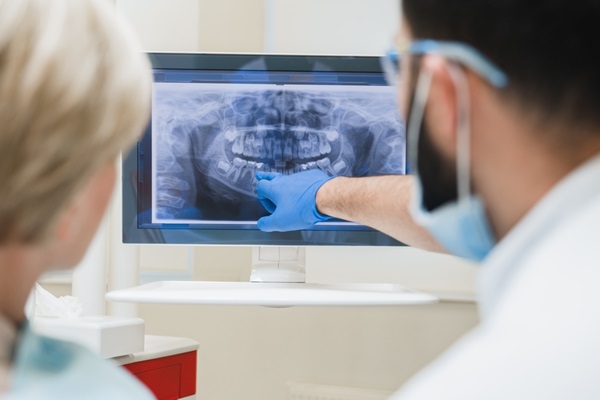Is Bone Grafting Necessary for Dental Implants?

If you are considering getting dental implants, you may be wondering if bone grafting is necessary. The answer is that it depends on the patient. Some patients may need extensive bone grafting. However, others may not need to have any bone grafting at all. Read on to find out when bone grafting may be necessary.
Considering getting bone grafting
The dentist will evaluate the area with several questions first. If the location seems inadequate, then a bone graft may be ended. This can improve the location of the implant site for the artificial tooth. Several questions will be asked, including:
- Is the bone thick enough?
- Is it wide enough?
- Is the bone dense and deep enough for an implant?
When bone grafting is required
Giving a bone grafting procedure to a patient is not always required. However, there are a number of different factors that can increase a patient’s potential need. For example, some patients have had missing teeth for some time. The longer that a tooth is missing, the more likely there is to be bone loss in the area.
Without the tooth, the deterioration can leave the area unable to receive an implant right away. Having strong bone is important for the dental implant to be a success. Each tooth takes a tremendous amount of force during chewing. Without enough bone, the implant can come out painfully. Some types of birth conditions can also cause a lack of bone in the area. Gum disease and previous injuries can also cause the bone to be less likely to successfully take implants.
Location
Some locations in the jaw will have more bone tissue. Other locations are more likely to require bone grafting. For example, the upper molars are usually around the bottom of the upper sinuses. The sinus is a hollow area in the skull.
This means that the bone around the sinus may not be dense enough or deep enough for an implant. An implant in that area may not last as long as most other implants. A surgeon may want to place extra bone in the area before dental implants. This can improve the rate of success for the procedure.
Getting bone grafting
Some patients may not want to have bone grafting. It does add a few extra months to the treatment time. However, patients will find that bone grafting and recovery will be worthwhile in the end. This can help patients get the most out of their new dental implants.
A person may need bone grafting to encourage bone growth and healing. This procedure is necessary for some medical purposes. Bone grafts can give a more solid foundation for new bone in the spine, hips, knees, and jawbone. A donor area from the patient’s own body or another source can be suitable of the procedure.
The risks
There are rare risks for bone grafting. Blood clots, infections, and anesthesia complications are a few of these risks. Some patients may not heal well, which may be a result of diabetes or tobacco consumption. Working with the dentist can help reduce the following risks:
- Periodontitis or gum disease can loosen teeth and weaken the jawbone. Bone grafting can reverse the effects of this condition. Over time, it can strengthen the jawbone to support dental restorations like dental implants.
- A missing tooth from an accident or an extraction may qualify the patient for bone grafting. The areas of the jawbone tend to shrink because there are no dental roots stimulating it. The body recycles the unused supportive bone and transfers it to other parts of the body. Bone grafting can strengthen and rebuild the area of the jawbone. This prepares the jawbone for extensive dental restorations like implant-supported dentures or dental implants.
- Misaligned teeth can also cause bone loss. Over-erupted teeth or teeth in the wrong positions can decrease jawbone stimulation. Straightening teeth is important. This allows the dental roots to be set the right way. Bone grafting can then provide more support as orthodontic treatments straighten the teeth.
Visit a dentist for bone grafting
Bone grafting is not always required before dental implants. However, when it is needed, you will find that it significantly improves your chances of a successful treatment. Bone grafting can provide you with a strong foundation for a smile that can last a lifetime. A dentist can help you determine if you may need bone grafting before getting dental implants. Contacting a dentist will allow you to set up a consultation.
Request an appointment here: https://spectrumsurgical.net or call Facial Spectrum at (816) 524-4334 for an appointment in our Lee's Summit office.
Check out what others are saying about our services on Yelp: Read our Yelp reviews.
Recent Posts
Research shows that Botox™ appeals to both men and women. Many individuals want to battle the signs of aging. This common treatment helps them look years younger without going under the knife. Learning when to get Botox from your oral surgeon can help you prepare for treatment day.Jaw clenching or teeth grinding at night is…
Searching for the most knowledgeable and skilled oral surgeon in your area can be challenging. But if you find the right dental care provider, you can achieve the enhancements that you want or need. Finding the right provider will need a little effort. Here are some tips you must consider for choosing the oral surgeon…
A facelift can give you a more youthful appearance. Getting this procedure from an oral surgeon can even enhance your oral health. This dental care provider has the knowledge and experience to bring out the results that you want. Here are the main reasons to get your facelift from an oral surgeon.This dental professional is…
A facial surgeon can help you improve your appearance or correct medical conditions. A complete assessment must happen first before creating a custom-fit treatment plan. This healthcare professional aims to help you meet your cosmetic and health goals. Here are the common procedures you should consider from an experienced facial surgeon.This form of surgery can…


